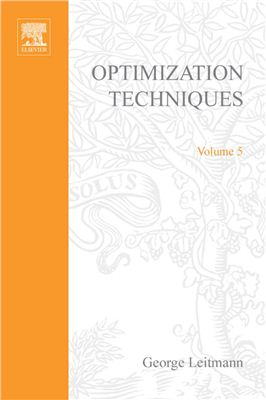Academic Press, 1962. - 453 pages.
Whatever man does he strives to do in the "best" possible manner. In attempting to reach a desired goal in an "optimum" fashion, he is faced immediately with two problems. The first of these is the decision of choosing the goal itself-the "payoff". For what is one man's optimum may well be another man's pessimum. Here he may decide to ignore the desires of the other interested parties and to choose a payoff solely on the basis of his own interests, whether or not these are in conflict with the interests of others. Thus, the scientist who wishes to carry out experiment,s using satellite-boe apparatus may desire an optimum ascent trajectory which results in maximum payload in orbit, even if such an "optimum" trajectory involves excessively large accelerations which are not tolerable from the point of view of the structural engineer whose job is the design of the carrier vehicle.
Whatever man does he strives to do in the "best" possible manner. In attempting to reach a desired goal in an "optimum" fashion, he is faced immediately with two problems. The first of these is the decision of choosing the goal itself-the "payoff". For what is one man's optimum may well be another man's pessimum. Here he may decide to ignore the desires of the other interested parties and to choose a payoff solely on the basis of his own interests, whether or not these are in conflict with the interests of others. Thus, the scientist who wishes to carry out experiment,s using satellite-boe apparatus may desire an optimum ascent trajectory which results in maximum payload in orbit, even if such an "optimum" trajectory involves excessively large accelerations which are not tolerable from the point of view of the structural engineer whose job is the design of the carrier vehicle.

